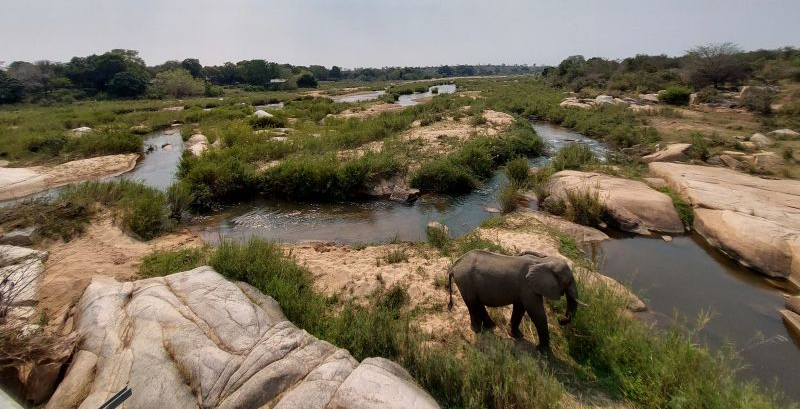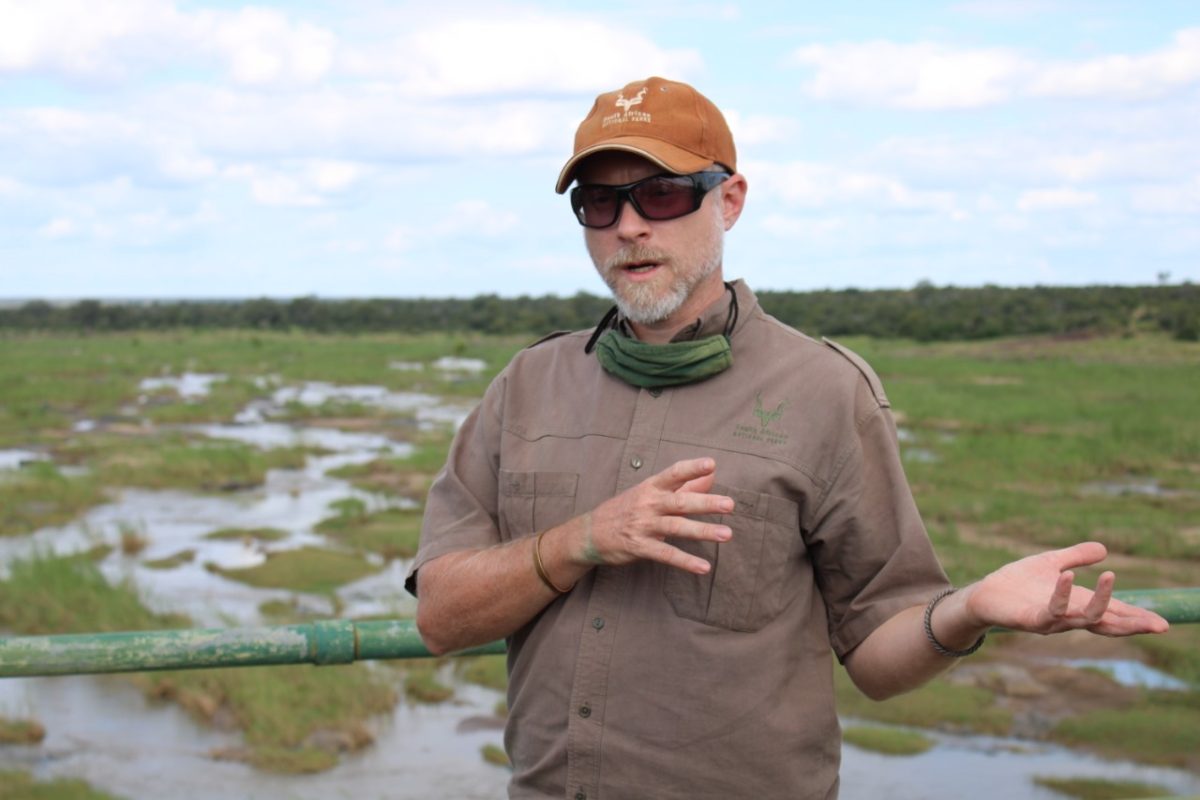Eddie Riddell: Improving livelihoods in Southern Africa
Posted in : A View From The Field on 16 April 2024

The Pafuri-Sengwe Node of GLTFCA spans regions in three countries— Mozambique, South Africa, and Zimbabwe. The area is rich in bird species and big game such as elephants, and ecotourism is a major source of income.
Pafuri-Sengwe encompasses the Limpopo River, whose seasonality limits livelihoods and leads to water and food insecurity for those living and working near the river. Pafuri-Sengwe is susceptible to drought, which is expected to intensify in coming years, leaving already vulnerable communities less equipped to support their families and jeopardizing the protection of biodiversity.
The Makuleke wetlands on the South African side of the Pafuri-Sengwe Node have been designated as protected by the Ramsar Convention on Wetlands; they are named for the Makuleke Clan, an agricultural and fishing community that was forcibly removed from its land by the former apartheid government. Title to their land was restored as part of the post-apartheid restitution law, and it is now known as the Makuleke Contractual National Park, located in the northernmost part of Kruger National Park and now a jointly managed and protected area.
The GLTFCA Joint Management Board has earmarked Pafuri- Sengwe as a key socio-economic development focus area as part of its Integrated Livelihoods Diversification Strategy.
The board turned to the Cooperation for International Waters in Africa for analysis of the extent of groundwater aquifers, above-ground water systems, water demand and usage, and water resources governance practices. The goal was to help communities be more climate-resilient and better equipped to plan for and mitigate drought, resulting in less loss of biodiversity and increased food and water security.
CIWA’s work “was very insightful and even counter to our own intuition,” says Dr. Eddie Riddell, who was the manager of Kruger National Park’s freshwater ecosystems and integrated water resources program at the time of the assessment; he helped design and implement the Pafuri- Sengwe work in collaboration with SADRI.

For example, Dr. Riddell explains, the assumption had been that communities in the area had limited access to water because of the highly seasonal flows of the Limpopo River (no flow in the dry season) but, in fact, they generally had good access because the area is in a floodplain with sufficient replenishment of alluvial groundwater. The issue was access to potable water because of high salinity and problems with cross-border water-related supply chains, which worsened during the COVID-19 pandemic.
“CIWA’s work was very insightful and even counter to our own intuition “, Riddell says
Some of the hand pumps have fallen into disrepair on the Mozambican side of the Pafuri-Sengwe Node, and communities there and on the Zimbabwean side face food insecurity. The South African side has somewhat more economic resilience but limited options to diversify livelihoods. CIWA’s analysis suggests this can change.
An important component of SADRI’s work was improving water resources knowledge and data management, which were outdated. The goals included generating baseline information on wetlands, groundwater, and the interaction between these surface and groundwater resources and determining the extent of water availability in aquifer, wetland, and river systems.
The team created maps to delineate the wetland systems linked to the river systems using GIS mapping and RS. SADRI also conducted a hydro-census to assess current water demand and usage and existing water governance structures and practices. It then developed country- and transboundary-specific recommendations and investment needs to build drought resilience.
“The general conclusion was that there is potential to assist communities to improve livelihoods,” says Riddell, who is now the regional coordinator for the Global Environment Facility’s International Waters Program in the transboundary Limpopo Basin. “Access to potable water is key and low-hanging fruit.”
The SADRI study also found that by investing in climate-smart tools, there is potential to increase communities’ health and well-being through improved productivity on vegetable farms.
“The stocktaking that CIWA did was extremely valuable to assist conservation managers to seek solutions for shared benefits in jointly managed protected areas.” Riddell says.


